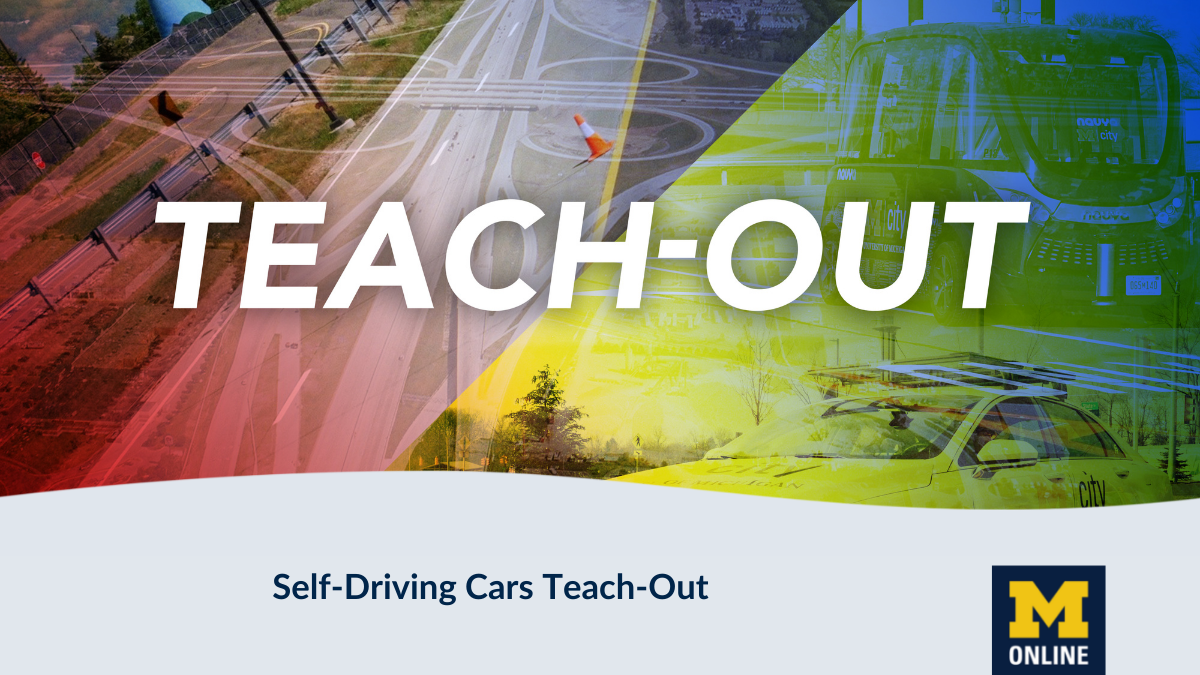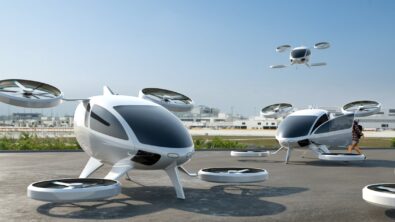Future of autonomous vehicles explored in new University of Michigan course

The drive toward self-driving cars continues to accelerate at an unprecedented pace and the promise of more accessible, lower-cost, and safer mobility options has electrified a broad discussion about the future of mobility and transportation around the world. Automated and driverless vehicles, sometimes known as autonomous vehicles, are a shining star in our collective digital futures as they will play an integral role in how we move people and goods from point A to point B. Despite this excitement, there are many challenges to overcome and many questions to be asked about this technology and how it will impact communities around the world.
Autonomous vehicles (AVs) are expected to be among the most complex technologies ever produced. These vehicles will require state-of-the-art components from multiple domains including embedded software, semiconductor chips, sensors and electrical wiring. Additionally, extensive testing, verification and validation will be required to ensure the safety of these systems. Rand Corporation has calculated that it requires more than 17 billion kilometers of test driving to demonstrate a failure rate significantly better than humans. Finally, AV manufacturers will need to address AV deployment in mobility systems and connectivity with other vehicles (V2V) and infrastructure (V2I), such as traffic lights and management systems. Leveraging these connections will be critical to the successful implementation of AVs within the context of an entire mobility system.
At Siemens, we believe that AV manufacturers will need to alter the very structure of their design, engineering and verification methodologies to surmount the challenges created by the multi-domain and multi-level complexity of AV development. They will need to adopt a new level of digitalization, connecting vehicle engineering and verification to manufacturing and utilization in the field. These companies will need to build a portfolio of solutions that can cover every domain and development process, from the chip to the city. A holistic chip-to-city approach that encompasses software, services, application development and transportation solutions will enable closed-loop engineering, testing and deployment of AV platforms.
In support of this vision, Siemens Digital Industries Software has partnered with Mcity, the University of Michigan’s public-private partnership devoted to advancing the development of connected and automated vehicles. As part of that partnership, this Teach-Out, originally developed in 2019, has been relaunched with new and updated content related to the evolving technology of connected and automated vehicles, workforce development, and smart cities. In this Teach-Out, you will hear leading experts in technology, law, accessibility and equity, and societal change.
The Teach-Out will address the following questions:
- What is a self-driving car? What is an automated or driverless vehicle?
- What are the major legal questions?
- What can we do to prepare?
- How do we build trust in this new technology?
- How are we testing this technology and when can we expect to see it on the roads?
- How is this going to change our modern society?
- How are people thinking about accessibility and equity?
- How do we train the next generation workforce for self-driving cars?
- What is a “smart city”?
You can access the Teach Out here. For a preview, watch Nand Kochhar, VP of Automotive and Transportation Industry at Siemens Digital Industries Software, as he talks about the future of autonomous transportation.


